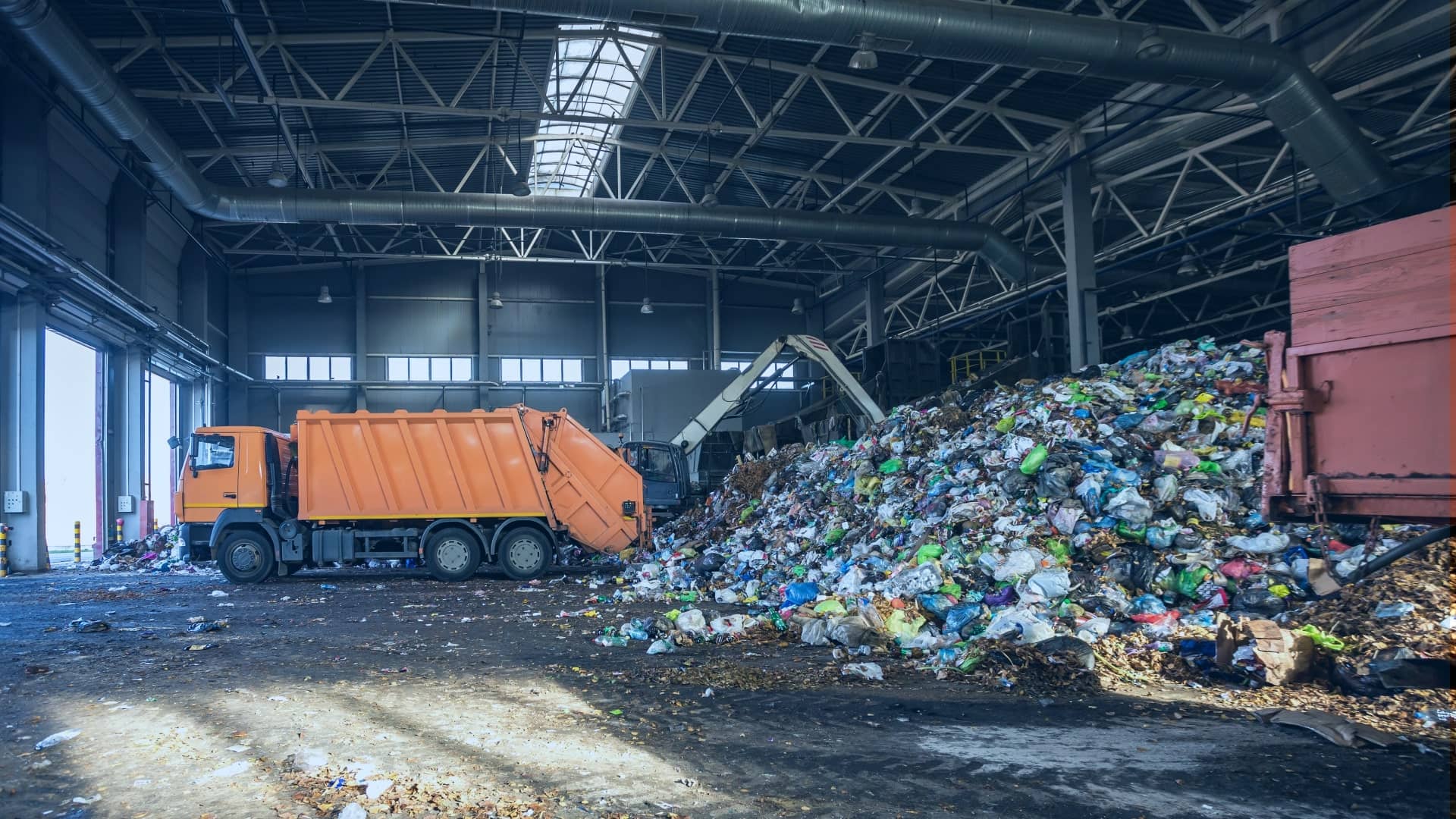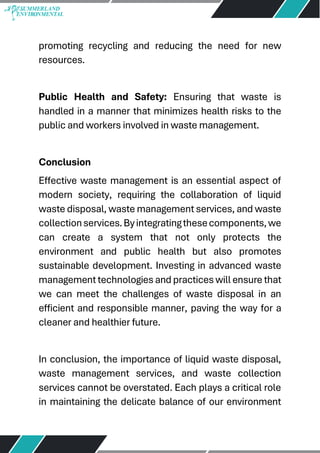Everything about Reclaim Waste
Everything about Reclaim Waste
Blog Article
Reclaim Waste Can Be Fun For Everyone
Table of ContentsReclaim Waste - The FactsThe 8-Minute Rule for Reclaim WasteGet This Report about Reclaim WasteThe Ultimate Guide To Reclaim WasteSee This Report on Reclaim Waste
Explore the types, incidents, and forms of liquid waste. Residential sewer waste refers to the waste and items from a residential sewage-disposal tank. This kind of waste is created by people in residences, institutions, and various other structures. This only consists of septic containers that have a drain area. The proper administration and disposal of domestic sewer waste call for liquid waste to be moved to a sewer treatment plant where the correct methods and devices are related to cleanse and get rid of waste.
Industrial waste frequently consists of possible threats, such as flammable products or a mixture of liquid and solid waste products, and requires a more sophisticated and thorough disposal process. The disposal of business waste generally entails the filtration of waste before transport to guarantee safe and correct disposal. Industrial waste is created from by-products and runoff of industrial processes and manufacturing.
This kind of waste can not use the exact same sewage monitoring transportation or processes as septic or business liquids. The commercial waste management procedure requires the examination and testing of liquid waste prior to it undertakes the disposal procedure (liquid waste removal melbourne). Drainage waste is the fluid waste that comes from drainage and excess stormwater in highly booming locations or cities
Overflow waste can cause contamination and flooding if not handled correctly. Find out much more concerning drain cleansing and waste management. Guaranteeing correct waste monitoring can stop catastrophes and decrease environmental injury. Both individuals in household setups and experts in commercial or production sectors can take advantage of comprehending the procedures and policies of fluid waste administration.
The 4-Minute Rule for Reclaim Waste
Call PROS Providers today to find out about our waste administration and disposal solutions and the proper means to care for the liquid waste you create.
(https://soundcloud.com/reclaimwaste1)This supposed 'wastewater' is not only a crucial resource but, after therapy, will certainly be released to our land, waterways or the ocean. Utilized water from bathrooms, showers, baths, kitchen area sinks, laundries and commercial processes is known as wastewater.

water utilized to cool equipment or tidy plant and devices). Stormwater, a kind of wastewater, is runoff that streams from agricultural and metropolitan areas such as roofs, parks, yards, roadways, courses and seamless gutters right into stormwater drains pipes, after rain. Stormwater moves neglected directly to regional creeks or rivers, eventually reaching the ocean.
Some Known Factual Statements About Reclaim Waste
In Queensland, a lot of wastewater is treated at sewer therapy plants. Wastewater is transported from domestic or commercial sites with a system of sewers and pump terminals, known as sewerage reticulation, to a sewage treatment plant. Regional federal governments build, keep and operate most sewage treatment plants. Operators are certified under the Environmental Management Act 1994 to release treated wastewater at an appropriate environmental standard into rivers.
The Division of Natural Resources encourages city governments regarding managing, operating and keeping sewage systems and treatment plants. In unsewered areas, regional governments may need owners to mount specific or family sewer treatment systems to treat domestic wastewater from commodes, kitchen areas, shower rooms and laundries. The Division of Natural Resources authorises using household systems when they are verified to be reliable.
The majority of stormwater gets no therapy. In some brand-new neighborhoods, treatment of some stormwater to eliminate clutter, sand and crushed rock has started making use of gross contaminant catches. Wastewater therapy happens in 4 stages: Removes strong matter. Bigger solids, such as plastics and various other things mistakenly released to sewers, are gotten rid of when wastewater is travelled through screens.
Wastewater after that moves right into big containers where solids resolve and are gotten rid of as sludge. Grease and scum are skimmed from the surface area. Makes use of little living organisms knows as micro-organisms to damage down and eliminate remaining liquified wastes and great fragments. Micro-organisms and wastes are incorporated in the sludge. Removes nitrogen and phosphorus nutrients that could trigger algal flowers in our waterways and threaten water life.
Unknown Facts About Reclaim Waste
Nutrient elimination is not offered in all sewer treatment plants because it calls for pricey specialised tools. It is coming to be more usual in Queensland. Clear fluid effluent produced after therapy might still contain disease-causing micro-organisms. If this effluent is launched right into rivers such as rivers or the sea, the micro-organisms will ultimately die out.

This normally indicates wastewater has actually to be treated or pollutants gotten rid of before it can be discharged to rivers. Most wastewater moves right into the sewerage system. Under the Act, city governments carry out authorizations and licences for eco relevant tasks (ERAs) involving wastewater releases that may have a local impact. The department carries this post out approvals and licences to Ages entailing wastewater releases that may have a regional or statewide effect.
About Reclaim Waste
Otherwise, samples are taken for lab evaluation. Commonly several examinations are needed to develop the levels of each of the different contaminants such as oils, hefty steels and chemicals in water. Surveillance provides accurate details regarding water quality and can validate that permit conditions are being satisfied. The details gotten with tracking offers the basis for making water top quality decisions.
Report this page